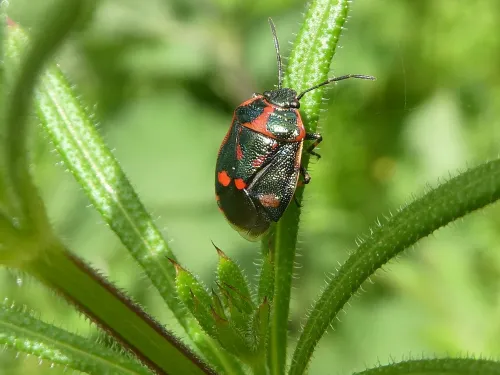
New data suggest that insect life continues to decline in Kent
The troubling extent of insect declines in Kent has been highlighted once again by the results of the 2025 Bugs Matter citizen science survey published today
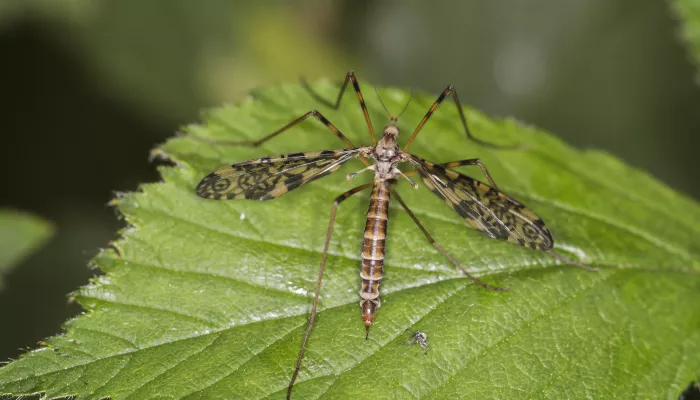
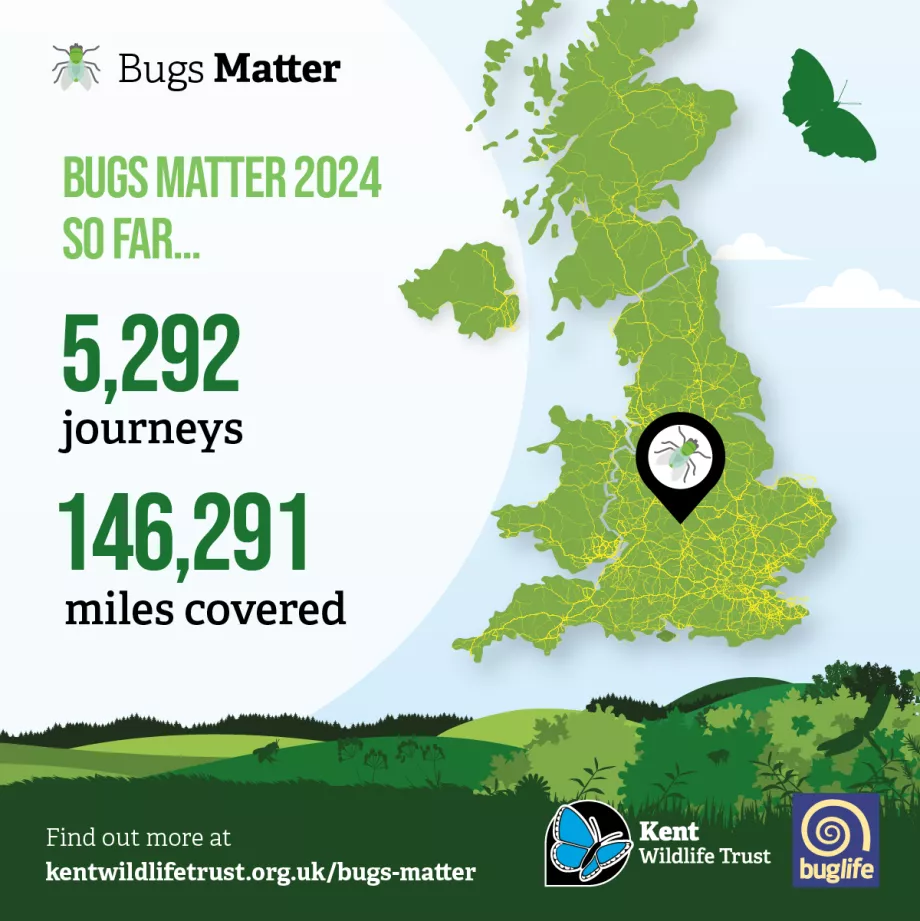
Dr Lawrence Ball, Kent Wildlife Ecological Data Analyst Lead shares: “Notably, participants in the South East have emerged as the front runners, having logged an impressive 1,279 journeys over the survey period so far. The East of England and Scotland are not far behind with 1,068 and 472 journeys, respectively, but there is still time for these regions and others to overtake before the end of September!”
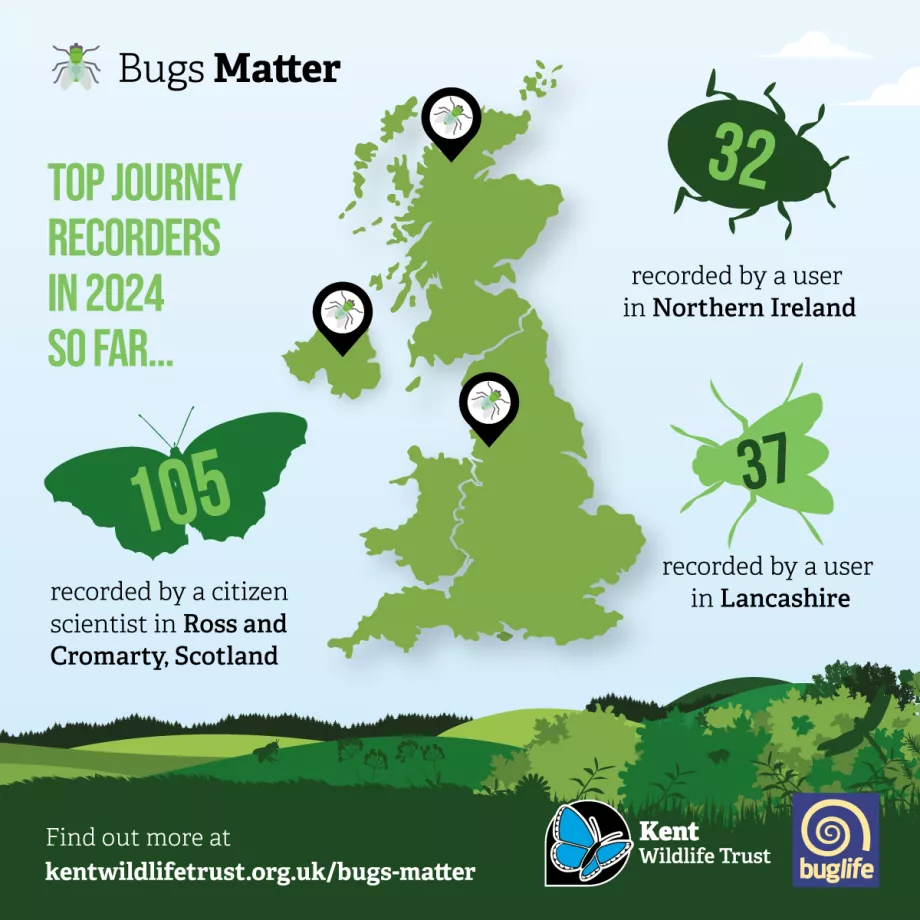
A noticeable lack of insects across the UK this summer has been the subject of much discussion across many social media platforms and discussion groups; with individuals and conservation groups expressing their fears about our future if we don’t take action for insects now.
A number of wildlife rescue and rehabilitation charities have recently come forward with anecdotal observations linking to possible declines in insects too. Bat conservation groups across Cambridgeshire, Norfolk, Worcestershire, Essex and South Lancashire have said that they are seeing an increase in the number of “starving” or “underweight” bats, often juveniles, who need to be rescued and cared for by volunteers. In some places, they are seeing fewer bats than they usually do in the summer.
Similarly, Oxfordshire Wildlife Rescue recently shared that “This year has been a true 'eye-opener' into the 'issues' regarding the lack of insect life and the weather patterns. The direct impact on insectivores/garden birds across various species has been all too clear: failed nestlings, abandoned nests/broods, and emaciation cases. As well as garden birds, we have taken on the care of 16 juvenile swifts, and many of these admissions have been emaciation cases.”
Conservationists are expressing that several factors may be contributing to the lack of insects, including habitat loss, pesticide use, light pollution, invasive non-native species and changing climate, and the knock-on effects on other species. Many experts are also advising that the unusual weather conditions of the last two years are an exacerbating factor. With a prolonged wet spring, and colder than usual summer conditions, many insect breeding cycles will have been impacted.
Dr Lawrence Ball emphasises the need for more research: "While these theories are plausible and anecdotal observations are valuable, we need robust data to understand the full picture. That's why every contribution to the Bugs Matter survey is vital."
The 2024 survey ends on 30 September 2024. Families, friends and individuals are encouraged to take part in the survey as part of their summer holiday activities. Further details on supporting Bugs Matter can be found here.

The troubling extent of insect declines in Kent has been highlighted once again by the results of the 2025 Bugs Matter citizen science survey published today
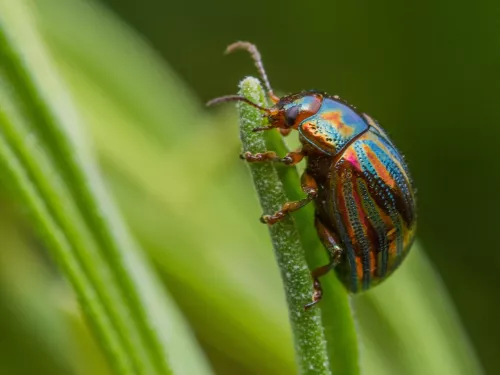
Since May, an army of citizen scientists has been embarking on a unique mission - counting bug splats on car number plates to help monitor the health of the UK and republic of Ireland’s insect populations.
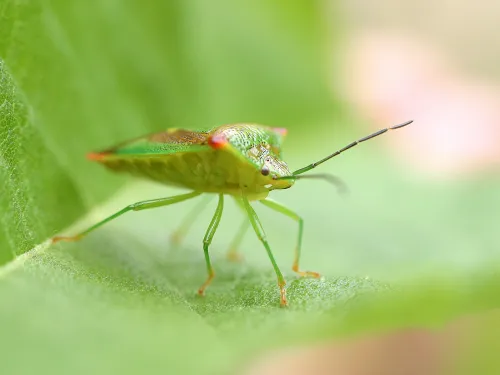
The Bugs Matter survey determined bug splats on number plates have fallen by 67% since the app was launched in 2021. Conservationists describe the outlook for Kent as “seriously concerning” but acknowledge that more data is required to determine…